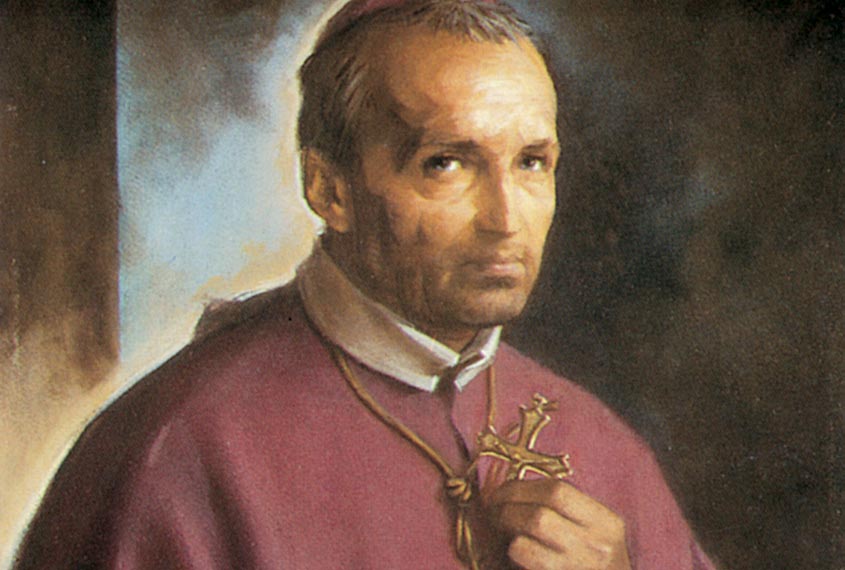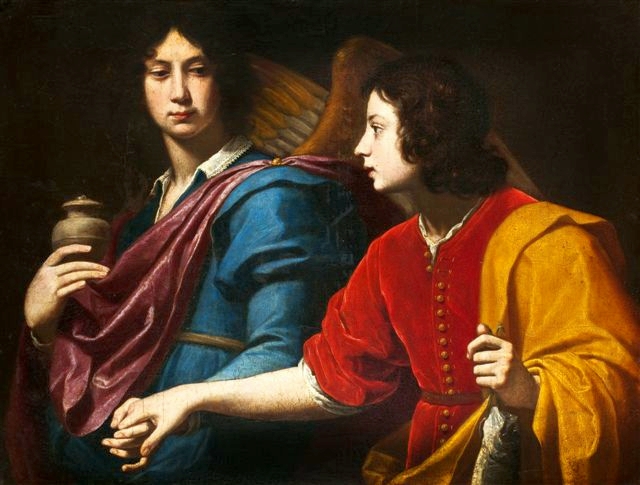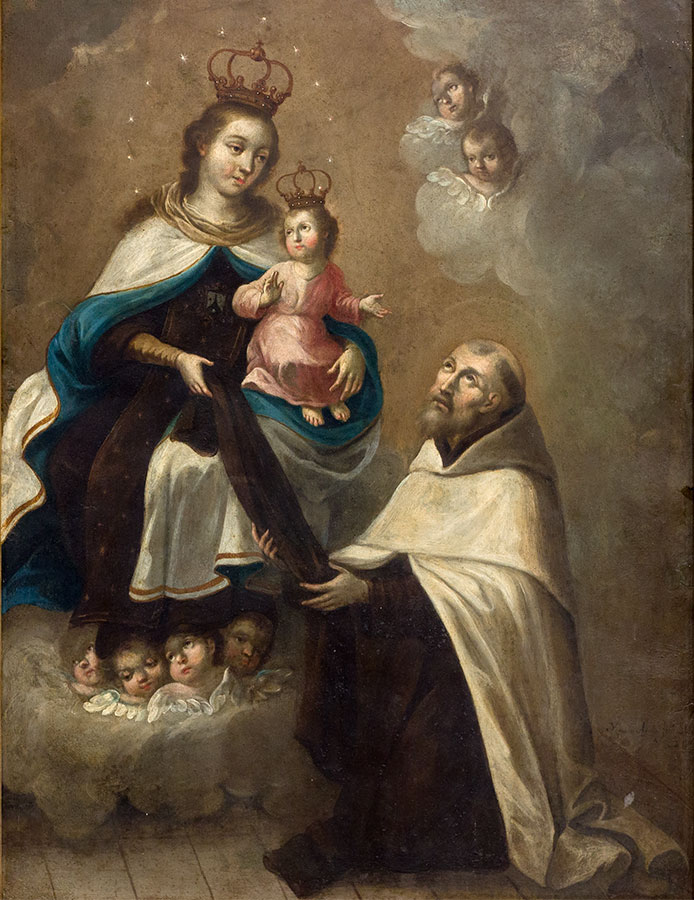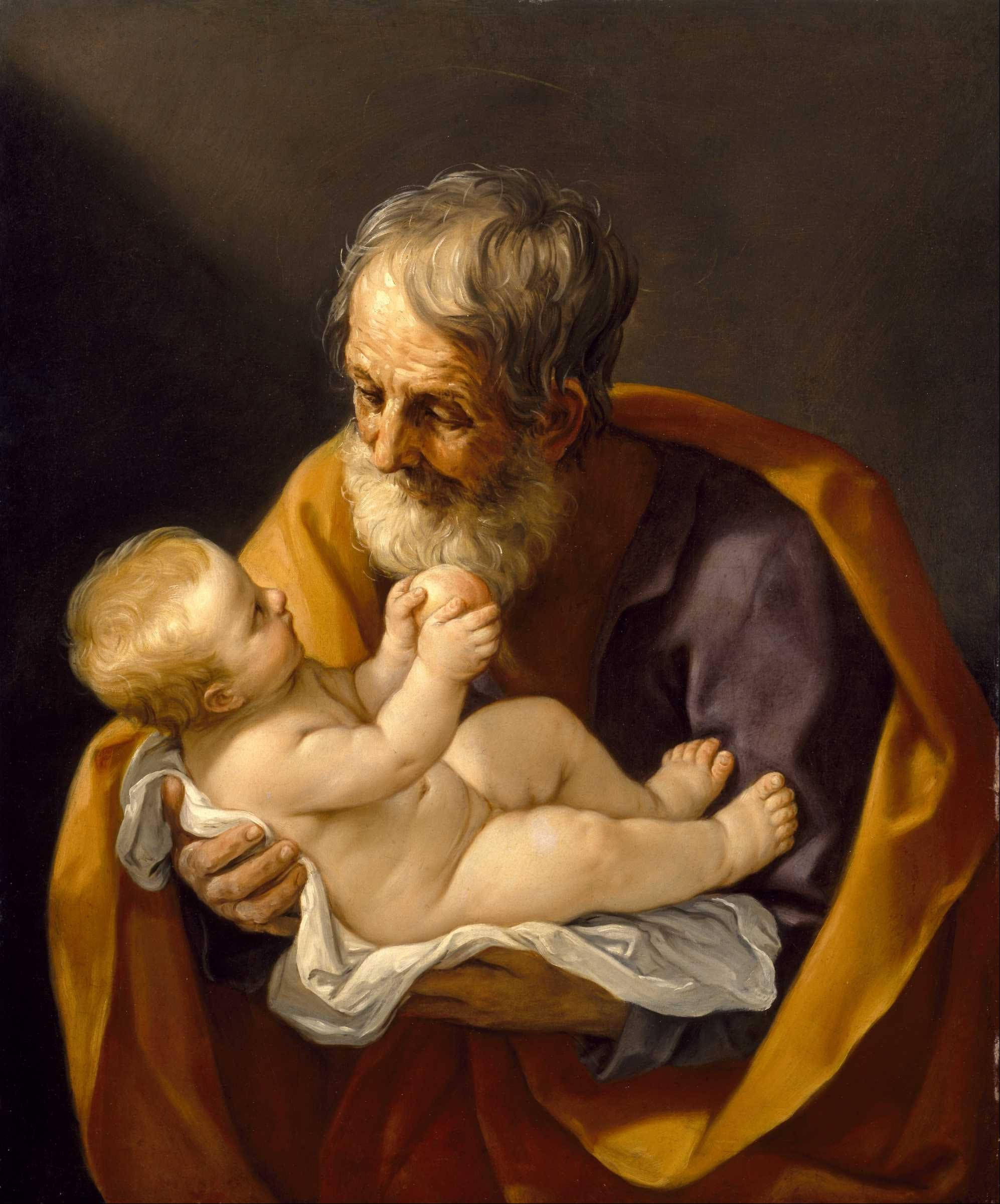We often hear that Our Lord came in the fulness of time. But what does that mean? Find out from Saint Alphonsus Liguori as he reflects upon the Incarnation of Christ and the birth of Our Savior into the world.
The World In Darkness and Sin
Consider that God allowed four thousand years to pass, after the transgression of Adam, before he sent his Son upon earth to redeem the world. And in the mean time, oh, what fatal darkness reigned upon the earth! The true God was not known or adored, except in one small corner of the world. Idolatry reigned everywhere; so that devils and beasts and stones were adored as gods.
But let us admire in this the divine Wisdom: he deferred the coming of the Redeemer in order to render his advent more welcome to man, in order that the malice of sin might be better known, as well as the necessity of a remedy and the grace of the Saviour. If Jesus Christ had come into the world immediately after the fall of Adam, the greatness of this favor would have been but slightly appreciated. Let us therefore thank the goodness of God for having sent us into the world after the great work of redemption was accomplished. Behold, the happy time is come which was called the fulness of time: When the fulness of time was come, God sent his Son, . . . that he might redeem them that were under the law.
What Does the “Fulness of Time” Mean?
It is called fulness, on account of the fulness of grace which the Son of God came to communicate to men by the redemption of the world. Behold the angel who is sent as ambassador into the town of Nazareth to announce to the Virgin Mary the coming of the Word, who desires to become incarnate in her womb. The angel salutes her, calls her full of grace and blessed among women. The humble Virgin, chosen to be the Mother of the Son of God, is troubled at these praises on account of her great humility: but the angel encourages her, and tells her that she has found grace with God; that is to say, that grace which brought peace between God and man, and the reparation of the ruin caused by sin. He then tells her that she must give her Son the name of Saviour: Thou shalt call his name Jesus;—and that this her Son is the very Son of God, who is to redeem the world, and thus to reign over the hearts of men. Behold, at last Mary consents to be the Mother of such a Son: Be it unto me according to Thy word. And the eternal Word takes flesh and becomes man: And the Word was made flesh.
Let us thank this Son, and let us also thank his Mother, who, in consenting to be the mother of such a Son, consented also to be the Mother of our salvation, and Mother also of sorrows, accepting at that time the deep abyss of sorrows that it would cost her to be the Mother of a Son who was to come into the world to suffer and die for man.
Affections and Prayers
O divine Word, become man for me, though I behold Thee thus humbled and become a little infant in the womb of Mary, yet I confess and acknowledge Thee for my Lord and King, but a king of love. My dearest Saviour, since Thou hast come down upon earth and clothed Thyself with our miserable flesh, in order to reign over our hearts, I beseech Thee come and establish Thy reign in my heart also, which was once, alas, ruled over by Thine enemies, but is now, I hope, Thine, as I desire that it may be always Thine, and that from this day forth Thou mayest be its only Lord: Rule Thou in the midst of Thy enemies. Other kings reign by the strength of arms, but Thou comest to reign by the power of love; and therefore Thou dost not come with regal pomp, nor clothed in purple and gold, nor adorned with sceptre and crown, nor surrounded by armies of soldiers. Thou comest into the world to be born in a stable,—poor, forsaken, placed in a manger on a little straw, because thus Thou wouldst begin to reign in our hearts. Ah, my infant King, how could I so often rebel against Thee, and live so long Thy enemy, deprived of Thy grace, when, to oblige me to love Thee, Thou hast put off Thy divine majesty, and hast humbled Thyself even to appearing, first, as a babe in a cave; then as a servant in a shop; then as a criminal on a cross? Oh, happy me, if, now that I have been freed (as I hope) from the slavery of Satan, I allow myself forever to be governed by Thee and by Thy love! O Jesus, my King, who art so amiable and so loving to our souls, take possession, I pray Thee, of mine; I give it entirely to Thee; accept it, that it may serve Thee forever, but serve Thee only for love. Thy majesty deserves to be feared, but Thy goodness still more deserves to be loved. Thou art my King, and shalt be always the only object of my love; and the only fear I shall have will be the fear of displeasing Thee. This is what I hope. Do Thou help me with Thy grace. O Mary, our dear Lady! it is for thee to obtain for me that I may be faithful to this beloved King of my soul.
ooo
This article is taken from a chapter in The Incarnation, Birth, and Infancy of Jesus Christ by Saint Alphonsus Liguori which is available from TAN Books.








